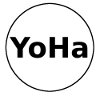- Wasted
- Plastic Raft
- Wrecked
- Database Addiction
- Endless War
- Evil Media Distribution Centre
- Invisible Airs
- Coal Fired Computers
- Database Documentry
- Aluminium
- Lungs
- MF2012
- Requiem for Cod

Brown Shrimp

Brown Shrimp:
from document 2009 Fishfacts: North Sea Brown Shrimp
Brown shrimps are mainly peeled in Morocco - every week, lorries drive up and
down with shrimps that are kept in climate-controlled conditions. Benzoic acid
and/or sorbic acid are added to the shrimps to conserve them safely - not
more than 0.6% in accordance with the EU standard. There are also intensive
bacteriological laboratory tests. Each year, the peeling centres return
approximately 9 million kilos of peeled North Sea brown shrimps to the
processing companies in the Netherlands. Part of that is frozen, whilst the rest
is packaged for further distribution without interrupting the chilling process.
North Sea brown shrimps are portioned in the quantities in demand by the
purchaser – the wholesaler, the supermarket, the specialised fishmongers.
Company Heiploeg group
One of the biggest shrimp processors and distributors, located in Zoutkamp, the Netherlands.
Our brown shrimp are peeled by hand in our own peeling station in Tetouan, Morocco. The shrimp are bought at the fish auctions in the Netherlands, Denmark and Germany and after collection transported to Morocco by truck.
The peeling is done in a state of the art facility that is under supervision from Heiploeg’s QA team in Zoutkamp. Upon arrival in Morocco the shrimp are unloaded and kept at a temperature of 0°C before peeling. Peeling is done in large conditioned rooms by in total some 2,500 people, mostly women, under well controlled circumstances. The peeling rooms are kept cool. All employees wear gloves, hairnets and mouthmasks in order to prevent contamination of the shrimps. Heiploeg Zoutkamp's QA department carries out regular quality audits in Morocco.
After peeling, the shrimp are preserved and transported back to the Netherlands in order to be packed at the Zoutkamp processing plant.
Article Shrimp peeling in Bulgaria
Two establishments were involved in shrimp peeling, a labour intensive processing in
which Bulgarian labour rates (about €100/month plus social costs) provide a
competitive advantage. The raw material is imported in frozen form, and comprises
mainly of brown shrimp (Crangon crangon) from Holland and Belgium. Shrimp is
boiled (if not already cooked), peeled by hand then packed in retail packs for chilled
distribution to EU retailers. Volume of raw material is estimated at over 2,000 tonnes
in 1999, with value added in excess of €2.0 million. The sector employed 700 workers in Yakoruda (Blagoevrad Region) and a further 290 in Devin (Smolyan Region). The business ceased completely with the loss of access to the EU market in November 1999, following the results of the inspection by the Commission technical services.
The EU partner (PAL Fisch GmbH) now arranges for shrimp to be processed in
Belarus and Morocco. Although plans exist to launch a new investment when EU
market access is re-established, it is not certain that the lost business can be
recaptured.
The Peeling Market:
Markets: peeling
•Failure of NL and DE attempts to peel locally and mechanically
•Almost all peeling operations take place in MA.
•Full peeling process: 15 days on average
•Big companies have their own peeling facilities
:
–
HEIPLOEG :
•own factory in Tetouan (1 400 employees)
•4 Moroccan contractors
–
KLAAS PUUL :
–
HEYKO :
factory in Morocco (250 employees)
–
TELSON :
Moroccan contractor in Tanger
•Cost of peeling : 5,20 €/kg (transport included)
Consumers generally not aware of elements likelyto affect shrimp quality:long peeling trip to Morocco, mixing of fresh and frozen shrimps, heavy use of preservatives, time between catch and purchase in the supermarket
 bnr#19 => Tantalum Memorial, Manifesta7, Alumix, Bolzano, Italy.
bnr#19 => Tantalum Memorial, Manifesta7, Alumix, Bolzano, Italy.